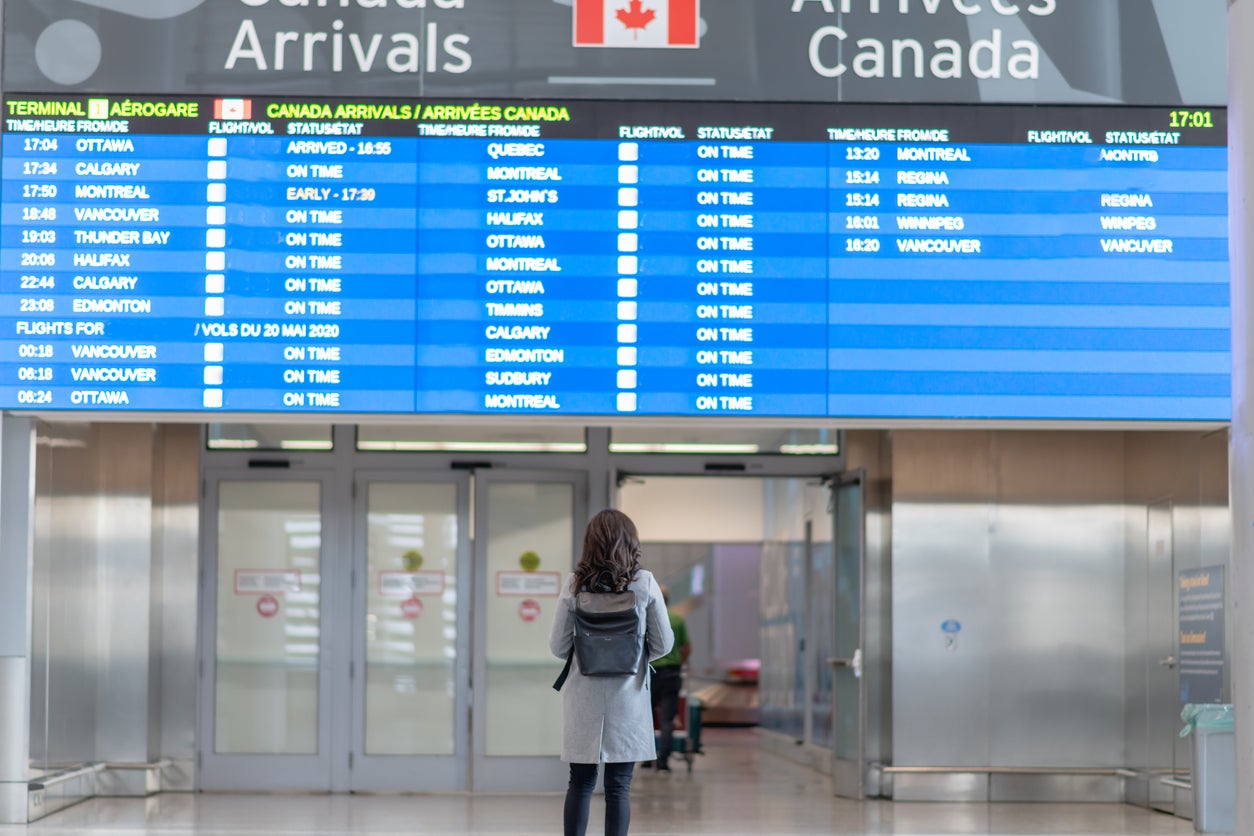Canada has scrapped Covid travel restrictions
Canada previously had some of the strictest Covid travel restrictions in the western world

Your support helps us to tell the story
From reproductive rights to climate change to Big Tech, The Independent is on the ground when the story is developing. Whether it's investigating the financials of Elon Musk's pro-Trump PAC or producing our latest documentary, 'The A Word', which shines a light on the American women fighting for reproductive rights, we know how important it is to parse out the facts from the messaging.
At such a critical moment in US history, we need reporters on the ground. Your donation allows us to keep sending journalists to speak to both sides of the story.
The Independent is trusted by Americans across the entire political spectrum. And unlike many other quality news outlets, we choose not to lock Americans out of our reporting and analysis with paywalls. We believe quality journalism should be available to everyone, paid for by those who can afford it.
Your support makes all the difference.Canada is now allowing unvaccinated arrivals. The change took effect at the start of October, following the country’s controversial reintroduction of testing on arrival in August.
Travellers who were in Canadian hotel quarantine after testing positive were able to walk out at one minute past midnight on Saturday, 1 October.
The world’s second-largest country (after Russia) ditched almost all Covid travel restrictions and red tape from the same date.
The Public Health Authority of Canada says: “All travellers, regardless of citizenship, will no longer have to submit public health information; provide proof of vaccination; undergo pre- or on-arrival testing; carry out Covid-19-related quarantine or isolation; [or] monitor and report if they develop signs or symptoms of COVID-19 upon arriving to Canada.”
Mandatory mask-wearing on trains and planes has also ended, though the authorities say: “All travellers are strongly recommended to wear high quality and well-fitted masks during their journeys.”
Cruise passengers are no longer legally required to test before boarding, though cruise lines may themselves insist on testing.
Canada previously had some of the strictest Covid travel restrictions in the western world, with the International Air Transport Association describing the nation as “a total outlier in managing Covid-19 and travel”.
Overseas visitors had to show proof of having completed a course of vaccination, with certificates uploaded to the nation’s ArriveCan app. In addition, international arrivals at larger Canadian airports were subject to random Covid testing and, if positive, mandatory hotel quarantine.
The government in Ottawa insists it has followed a “prudent, risk-based and measured approach” to international travel throughout the coronavirus pandemic.
The health minister, Jean-Yves Duclos, said: “Thanks largely to Canadians who have rolled up their sleeves to get vaccinated, we have reached the point where we can safely lift the sanitary measures at the border.”
The ArriveCan app is longer mandatory for international arrivals, but it remains optional as a possible time-saver for travellers entering Canada.
Covid-19 remains a notifiable disease in Canada. Anyone with symptoms “should not travel”. If a traveller becomes sick during the journey, “they should inform a flight attendant, cruise staff, or a border services officer upon arrival”.
The health authority says: “They may then be referred to a quarantine officer who will decide whether the traveller needs further medical assessment.”
Join our commenting forum
Join thought-provoking conversations, follow other Independent readers and see their replies
Comments